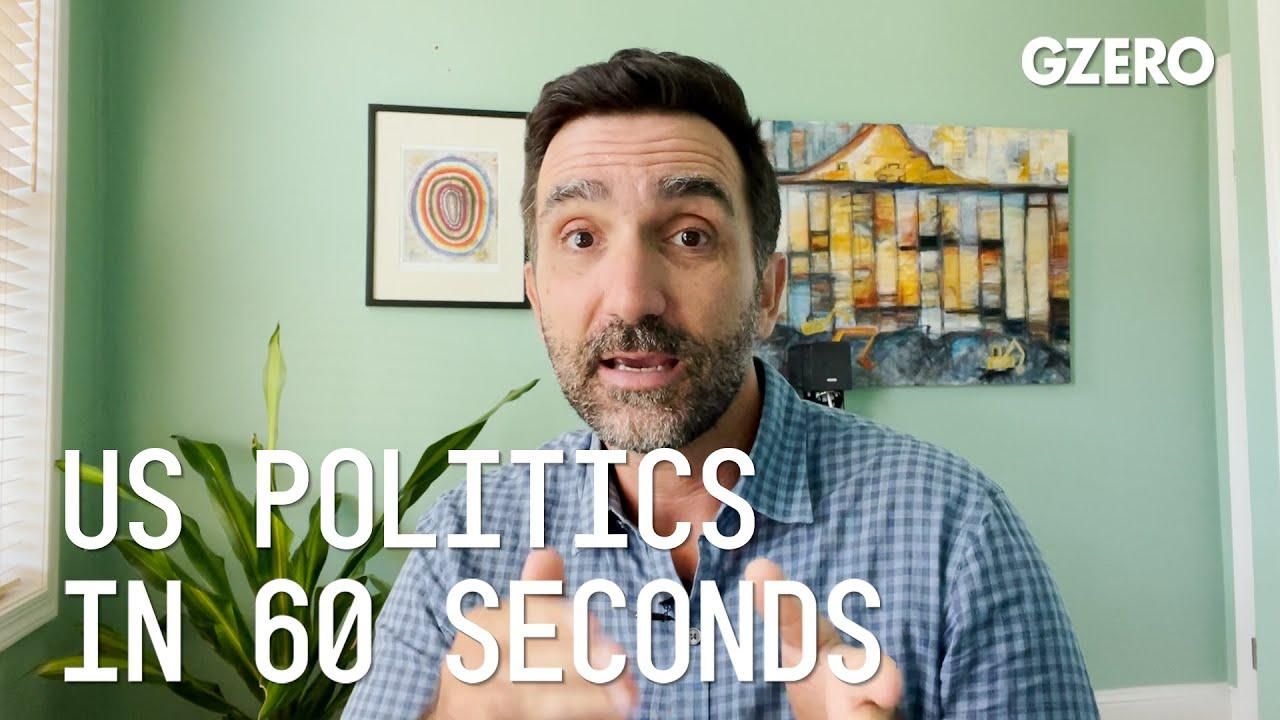US Politics In 60 Seconds
Political transformation 20 years after 9/11

How 9/11 Has – and Hasn’t – Influenced Us Politics in 20 Years | US Politics In :60 | GZERO Media

Jon Lieber, head of Eurasia Group's coverage of political and policy developments in Washington, shares insights on US politics:
Two decades later, in what ways has 9/11 shaped US politics?
Well, I think if you can go back in time from today to late 2001 and early 2002, people then would be surprised to learn three things. The first is that the Taliban were back in charge of Afghanistan. The second is that Iraq can transition to a relatively stable democracy. And the third is that after 9/11, there were no future foreign-planned major terrorist attacks against the United States. This last piece of information will particularly surprise people, and they'd also be surprised to learn that the major threats facing the US were largely domestic political instability and a rising geopolitical conflict with China, which had just become an open trading partner of the US just before the 9/11 attacks happened.
As a result, Americans have largely moved on from 9/11 and while huge majorities think that September 11th attacks were the major historical event of their lifetimes, it's having a smaller political impact in the US than either the aftermath of the global financial crisis or the election of President Donald Trump. The most visible impact from 9/11 has probably been the security theater that Americans have come to live with at airports and other public venues. And Americans still haven't resolved issues over acceptable levels of government surveillance into their private matters, even while they've given up more control of their privacy to tech companies that didn't really exist anywhere close to their current form in the year 2000.
Probably the biggest change between then and now is how the US might respond to a future terrorist attack. It's important to remember that George W. Bush was a deeply polarizing figure coming out of the 2000 election, which was very, very close. Decided by fewer than 800 votes in the state of Florida and ultimately, settled by the Supreme Court. Since that time, most policy issues are seen through a much more deeply polarized lens, and this wasn't really the case in 2001. As a result, you had enormous support for the wars in Iraq and Afghanistan in Congress, which took many years for members of Congress to start to repudiate as they caught up with the polarization in the public. Today, you've got much more political outsiders in Congress who might take a different view around rallying 'round the flag to fight a war in a foreign land, and you also have a lot more diverse voices in the media, which would probably complicate efforts to have a cohesive national response to a terrorist attack like this.
So, in many ways, it's surprising how little an effect 9/11 has had 20 years on now that the war in Afghanistan has ended. Obviously, that's different for military families and others who have sacrificed over the years in order to keep America safe, but today's political landscape has really transformed from what it was in the days after the attack.
China was largely absent from the core conversations at the 2026 Munich Security Conference. That, says Ian Bremmer, is telling.
At the 2026 Munich Security Conference, Brad Smith announces the launch of the Trusted Tech Alliance, a coalition of global technology leaders, including Microsoft, committing to secure cross-border tech flows, ethical governance, and stronger data protections.
Tune in today at 12pm ET/6pm CET for the live premiere of our Global Stage from the 2026 Munich Security Conference, where our panel of experts takes aim at the latest global security challenges. NY Times National Security Correspondent David Sanger moderates the discussion with Benedetta Berti, Secretary General, NATO Parliamentary Assembly; Ian Bremmer, President & Co-founder, Eurasia Group & GZERO Media; Dr. Wolfgang Dierker, Global Head of Government Affairs, SAP; and Brad Smith, Vice Chair & President, Microsoft.